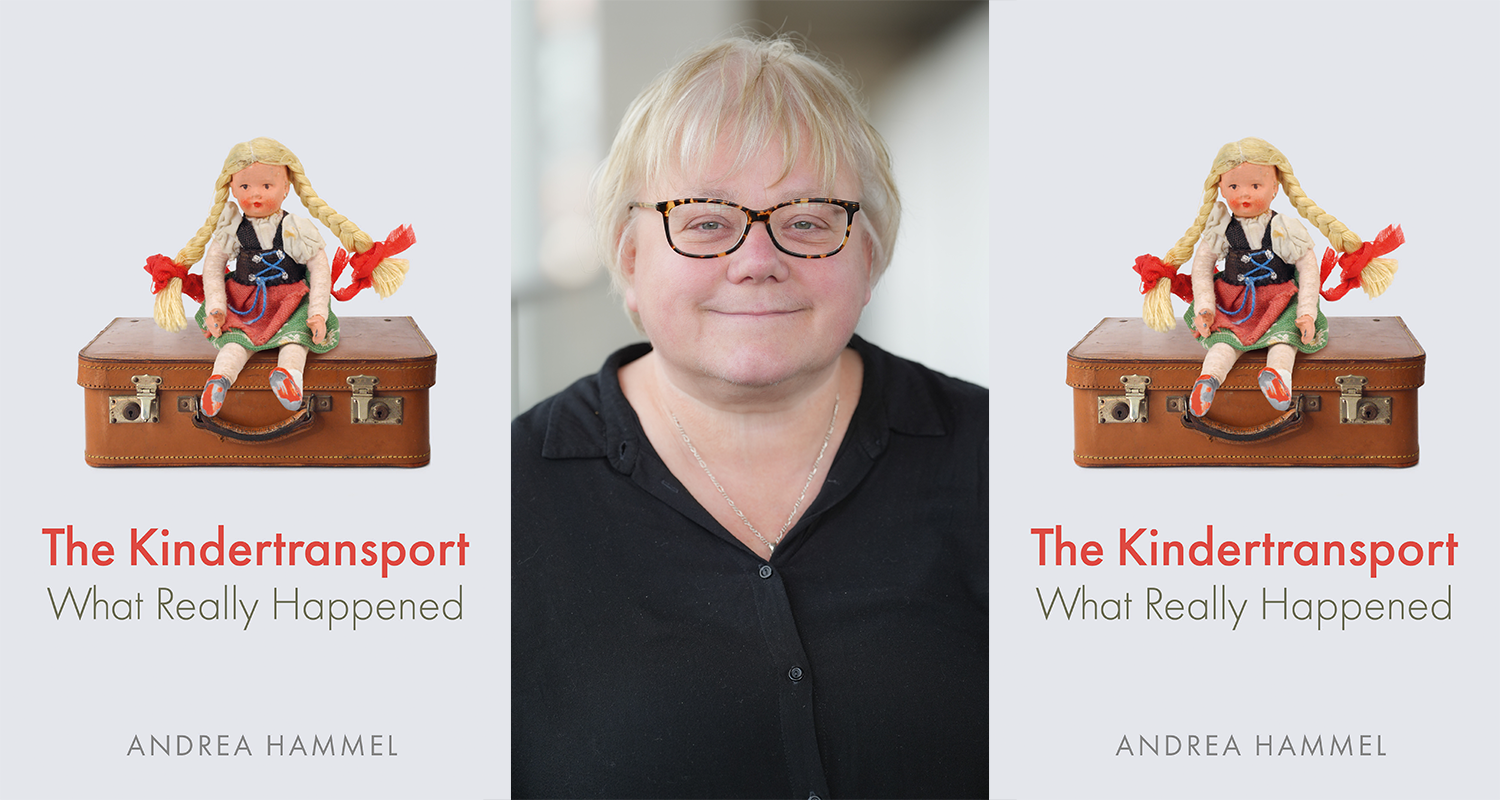Kindertransport - uncomfortable truths at heart of heroic wartime scheme

Professor Andrea Hammel
01 December 2023
On the 85th anniversary of the Kindertransport scheme, an Aberystwyth University academic reveals a darker side to the feel-good wartime success story.
On 2 December 1938, the first Kindertransport trainarrived in Harwich in Essex, bringing 196 Jewish refugees from Berlin.
Over the ten-month period that followed, around 10,000 Jewish child refugees were rescued via Kindertransport. Most would never see their parents again, many of whom were murdered during the Holocaust.
In her new book, ‘Kindertransport – What Really Happened’, expert Professor Andrea Hammel suggests that although the Kindertransport scheme is often viewed as a positive example of the UK’s humanitarian and altruistic attitude towards refugees in the past, in reality its legacy should be viewed through a more critical lens.
Professor Hammel, who is Director of the Centre for the Movement of People at Aberystwyth University, said:
“Traditionally, the Kindertransport has been remembered as a generous government-led scheme - a heroic rescue achieved against the odds. Extensive research over the last two decades, however, suggests that the legacy of the Kindertransport should be seen in a more critical light.
“From an organisational and financial point of view, the scheme was poorly resourced by the British government, which was responding to pressure from the public horrified by what was unfolding under the German Reich. Indeed, the Kindertransport scheme relied on charitable donations and volunteers.
“The British government also only relaxed visa rules for children - it refused to admit the child refugees’ parents, who would have competed for jobs at a time of high unemployment amongst British workers. The selection criteria did not prioritise the most urgent cases either, but those who were likely to make the best contribution to society. And some children and young people were placed in unsuitable homes, sometimes with terrible consequences.
“There is much that history can teach us about historical treatment of refugees, which could make life easier for children fleeing conflict today, and it’s important that we are realistic about the success but also the shortcomings of the Kindertransport.”
‘Kindertransport – What Really Happened’ by Professor Andrea Hammel is published by Polity Books.



